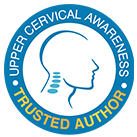upper cervical blogdr. blom Work Specifically in the neck and neck related disorders?
|
|
Peripheral vertigo is generally caused by problems in the inner ear. Central vertigo is related to a problem in the central nervous system (CNS) that leads to vertigo. Let’s take a closer look at these two types of vertigo as well as the role of a chiropractor in Boise in providing natural remedy that may help you overcome your dizzying and spinning sensations. Want to learn more about how you can relieve vertigo attacks with the help of upper cervical care? We can help! Contact us at (208) 559-0541 or book your appointment with us online.
0 Comments
 Every Boise vertigo chiropractor wants to combat vertigo. Vertigo is quite a common symptom. It's the reason why it was broken into two categories based on the two specific regions of the body where the symptoms appear. In this post, we will be talking about the distinctions between peripheral vertigo and central vertigo. We will also include what conditions trigger these symptoms, and lastly, how you will be able to find long-lasting vertigo relief. Here are the two most common types of vertigo: Peripheral VertigoPeripheral vertigo is related to causes that originate from the ear. This kind of vertigo is often the consequence of problems within the inner ear. The inner ear detects spatial orientation and balance for the body. The “eighth cranial nerve” or the vestibular nerve transmits signals to the brain for processing. Then the brain picks up signals combined with other sensory information in the body. If anything disrupts this delicate system, vertigo becomes the result. Peripheral Vertigo and Its Causes Peripheral vertigo can be associated with several other diseases. If you have a cold or the flu, for example, it may cause inflammation that ends up leading to vertigo. Inflammation that occurs in the inner ear is labyrinthitis. On the other hand, swelling inside the vestibular nerve is vestibular neuritis. In both cases, swelling and vertigo attacks usually clear up within a couple of weeks, by the end of the virus’ duration. Below are a few other causes of peripheral vertigo that often lead to problems on a more frequent basis. If you have one of these conditions, you can consult a Boise vertigo chiropractor to care for it. Benign Paroxysmal Positional Vertigo (BPPV) BPPV or positional vertigo, refers to vertigo that occurs when you make head movements or sudden changes in head position. It can develop when the tiny crystals found in the inner ear canals move from their designated place. However, take note that some doctors use this diagnosis as a catch-all when the fundamental cause of your vertigo is unclear. Therefore, as a result, this has become the most widespread diagnosis for vertigo. Thus, it makes peripheral vertigo far more common than central vertigo. Meniere’s Disease Meniere disease is a vestibular condition. It often affects just one ear, at least at its early stage. More often than not, severe vertigo is what pushes a person to go to the doctor since the attacks usually run for at least 20 minutes and may extend throughout the day. There is congestion or feeling of fullness in the afflicted ear, partial hearing loss, and tinnitus in Meniere’s. Tinnitus and hearing loss are the symptoms that tend to increase the most as the condition gets worse. Central VertigoAnother condition that a Boise vertigo chiropractor can help with is central vertigo. Central vertigo relates to causes found within the central nervous system (CNS). The CNS manages how the body determines spatial orientation and balance. With central vertigo, the body is accepting the correct sensory data but failing to interpret it correctly. Vertigo is just one possible result of this wrong interpretation of signals by the brain. Central Vertigo and Its Causes Central vertigo is far more common than researchers estimate. What causes this type of vertigo to occur? Head Injuries or Head Trauma Post-concussion syndrome can lead to the start of vertigo. However, even if you didn’t sustain a concussion, vertigo may still appear in the coming weeks or months after experiencing a head or neck trauma. Migraines Migraines are one of the most prevalent ailments in the United States, with 39 million Americans having them. In addition, researchers have found that up to 40% of individuals with migraines have vertigo as their primary symptom. In other words, migraines are one of the most common causes of vertigo. Multiple Sclerosis (MS) MS is another neurological disorder that has vertigo as one of its many symptoms. Vertigo can also be due to the following:
To learn more about the connection between head and neck injuries and vertigo download our complimentary e-book A Clinical Study on Vertigo & Upper Cervical ChiropracticIn a clinical study observing 60 patients with chronic vertigo, all patients had misalignments in the upper cervical spine. All 60 patients responded well to upper cervical chiropractic care. 48 became symptom-free, and the remaining 12 had significant improvements—they reported reduced frequency and severity of their vertigo attacks. If you, a friend, or a loved one is living with frequent vertigo attacks, then isn’t it time to do something about them soon? Are you always worried when the next attack will appear? How can anyone stop the false sensations of movement caused by vertigo? Getting Lasting Relief With The Help Of A Boise Vertigo ChiropractorThe best way to deal with the two types of vertigo is by resolving issues in both the ears and the central nervous system. In short, do not overlook the neck or upper cervical spine. This area is the primary focus of upper cervical chiropractic care.
When the top two vertebrae, the atlas (C1) or axis (C2), in the neck shift out of alignment, it often affects both the ear function and the central nervous system. How is this possible? A misalignment can reduce the capacity of the Eustachian tubes. When these tubes malfunction, then the ears are not draining the excess fluid appropriately. Vertigo becomes one of its possible symptoms. Also, an upper cervical misalignment can disrupt and limit the proper flow of cerebrospinal and/or blood flow, further hindering central nervous systems (CNS) activity. Moreover, the Atlas (C1) surrounds the brainstem, therefore misalignment of Atlas (C1) can result in a mechanical type stress and pressure upon the brainstem, which disrupts the interpretation of sensory signals coming from other parts of the body to the brain. A Boise vertigo chiropractor that practices upper cervical chiropractic care can help you to determine if you have such a misalignment in your upper cervical spine. Call Upper Cervical Health Center in Boise, Idaho at (208) 559-0541 to schedule an appointment with us. To schedule a consultation with Dr. Blom click the button below or call 208-559-0541 Did you know that some essential oils can work wonders on people with chronic vertigo attacks? Find out what specific oils make a good secret ingredient to have in your bag as you read on. Also, learn the key role of a Boise Upper Cervical Chiropractor in correcting one of the many potential causes of vestibular problems. Learn more about how simple neck bone adjustments can amplify your efforts in controlling vestibular problems like vertigo attacks. Contact our team at Upper Cervical Health Centers Boise at (208) 559-0541 or through our contact form.
 When patients come to our vertigo clinic in Boise, ID, they often look for answers about their condition. Most of them have minimal knowledge about vertigo and only know something is wrong because of the unusual spinning sensation they experience. This blog article is here to educate you about vertigo, including its origin, the tests used to help you get a proper diagnosis, and a natural treatment that can help you manage your symptoms or eliminate it altogether. Vertigo Meaning Vertigo is the sensation that you or the things around you are spinning even when there’s no movement at all. The feeling can happen whether you're sitting, lying down, or standing. This false sense of motion is among the leading medical complaints. Vertigo has two classifications:
Types of Vertigo Based on Origin Vertigo has two known forms: peripheral vertigo and central vertigo.
Vertigo Symptoms The feeling of vertigo can be compared to motion sickness or a sensation that your world is spinning. You may feel off-balance. Vertigo may last for minutes to hours, and symptoms can either be chronic or episodic. Some of its symptoms are the following:
Causes of Vertigo Vertigo is often a symptom of an underlying health condition such as the following: Benign paroxysmal positional vertigo (BPPV) This is the most common type of vertigo and occurs due to the moving of calcium crystals in the wrong part of the inner ear. Moving your head in a certain position, like when you roll over in bed, can trigger a vertigo attack which can last from 15 seconds to a few minutes. To learn more about the connection between head and neck injuries and vertigo download our complimentary e-book Labyrinthitis
The bony area that houses the inner ear is called the labyrinth. Labyrinthitis occurs when bacteria enter the inner ear, causing infection and inflammation of the labyrinth. Besides vertigo, its symptoms include tinnitus (ringing in the ear), nystagmus (abnormal jerking of the eye), loss of hearing, nausea, and vomiting. Vestibular neuritis The vestibular nerve is a branch of the vestibulocochlear nerve. It helps control the body’s balance by coordinating signals between the brain and the inner ear. Virus causes the inflammation of the nerve, resulting in vertigo and its related symptoms. Meniere’s disease This is a disorder of the inner ear that also involves vertigo, hearing loss, and tinnitus. It can be related to viral infections, allergies, a head injury, or inherited genes. Those with Meniere’s experience unexpected vertigo attacks and hearing loss that comes and goes, with periods of no symptoms at all in between. Changes in hormones during pregnancy Pregnant women may feel the sensation of vertigo when they have low blood sugar. A migraine It is a severe form of a headache and can also bring about vertigo. Acute peripheral vestibulopathy (APV) This disorder occurs when there is inflammation of the inner ear resulting in a sudden onset of vertigo. Perilymphatic fistula It is the abnormal communication between the middle and inner ear. Acoustic neuroma This is connected to a tumor of the nerve tissue of the inner ear. Although it rarely causes vertigo, it can come with hearing loss and ringing in one ear. Otosclerosis The abnormal growth of bone in the middle ear. Cholesteatoma erosion When a cyst in the inner ear causes erosion, vertigo can be the end result. Multiple sclerosis The vertigo attack is often sudden and may involve the inability of the eyes to move past the midline toward the nose. Diabetes Complications from diabetes can result in hardening of the arteries, which can cause a reduction in blood flow to the brain. Anxiety or panic attacks It is a possible reason for vertigo. Stress can worsen the symptoms, but not cause them. Other conditions Head trauma and neck injury, stroke, or a tumor in the cerebellum can also cause vertigo. Tests Used to Diagnose Vertigo To confirm if you have vertigo, your doctor may first order an MRI or CT scan to study your brain. After the initial assessment, your doctor may also use one of these tests: Dix-Hallpike test While sitting on the exam table, you’re quickly lowered so you are lying down with your head slightly to the left or right. This is done to examine your eye movements to learn more about your vertigo. Head-Thrust test While looking at your doctor’s nose, the doctor will suddenly move his or her head to the side to see if you have correct eye movement. Fukuda-Unterberger test The doctor will ask you to march in place with your eyes closed and will observe whether you begin to lean from side to side. Romberg test Standing with your feet together and eyes open, you will be requested to close your eyes to see if you can keep your balance. A Natural, Scientific-Based Treatment for Vertigo Vertigo often occurs as a result of a misaligned vertebra in the upper cervical spine. The atlas (C1) and axis (C2) are vulnerable to misalignment due to several things such as but not limited to sports injuries, whiplash type injuries, car accidents, or even simple slips and falls. The C1 and C2 vertebrae protect the brainstem, so when a misalignment occurs, it can put pressure on the brainstem. This can result in interference to signals to and from the brain regarding the body’s position in its surroundings. When this happens, vertigo can ensue. At Upper Cervical Health Center Boise in Idaho, we can locate and determine the nature and degree of the problem in the neck by utilizing precision imaging and measurement of your unique anatomical structures. We correct misalignment by applying a precise and gentle method that does not result in any popping or cracking in the neck or spine. Many of our patients see improvements in their vertigo symptoms within a relatively short period of time. To schedule a consultation with Dr. Blom click the button below or call 208-559-0541  Vertigo, the terrible feeling of having the world spin around you, is not actually a standalone condition. Rather, vertigo is a symptom of many health conditions. Different diseases come along with vertigo of varying severity – sometimes the feeling is barely noticeable and vague, other times it can be so severe that it prevents a person from being able to balance at all. Vertigo attacks can come on gradually or suddenly and last from just a few seconds or much longer. Vertigo can be described in many ways:
Regardless of how vertigo presents in any individual case, it can be the source of much anxiety, loss of self-reliance, and can cause major disruptions in performing daily tasks. How Does my Body Maintain its Sense of Balance? When vertigo strikes and you feel like the whole world is spinning around you, your body has lost its normal ability to maintain its sense of balance. When your body’s balance system is working as it should, there’s no reason to ever really pay much attention to it. However, when something goes awry and you find yourself unsteady on your feet, then balance becomes a big deal. To achieve balance, there is a constant feedback loop running that responds to sensory input and responds by correcting posture through motor control. The components of your balance system include: To learn more about the connection between head and neck injuries and vertigo download our complimentary e-book
Vertigo and Vestibular Disorders The most common causes of vertigo have their roots in the vestibular system, which includes parts of the inner ear and brain that control eye movements and balance. Vertigo can be one of the most debilitating symptoms of a problem with the vestibular system. Vestibular disorders are commonly caused by head or neck injury, environmental factors, genetics, or illness. Some of the most common vertigo-causing vestibular conditions include:
Vertigo Relief with Upper Cervical Chiropractic Care Because it’s known that head and neck injury is one of the most common vertigo-provoking events, many vertigo sufferers are finding relief by having their upper cervical neck alignment checked and corrected. A common cause can be identified in the many vertigo-causing conditions above. When the atlas, the uppermost vertebra in the neck, misaligns as a result of an injury it can cause a disruption in the way your brainstem can sort and process balance signals. When positioned correctly, the atlas forms a protective ring around the brainstem. However, when it’s misaligned, it can cause irritation and inflammation that can ultimately result in vertigo. At Upper Cervical Health Center Boise, we use state-of-the-art equipment to perform a thorough analysis of each of our patients to determine if an atlas misalignment is a factor that’s contributing to their vertigo. If so, we use gentle, precise methods to restore normal upper cervical alignment. The body is then able to heal naturally, resulting in a reduction in vertigo and other symptoms associated with vestibular conditions. If you’re tired of living in anxiety over when your next episode might occur, contact us to schedule a complimentary consultation to discuss the details of your case and how we might be able to help you. References: https://vestibular.org/about-vestibular-disorders/causes-dizziness https://www.nhsinform.scot/illnesses-and-conditions/ears-nose-and-throat/vertigo To schedule a consultation with Dr. Blom click the button below or call 208-559-0541  To begin with, it is important to note that vertigo is not a condition but rather a symptom of other health conditions. It is the feeling that you or the things in your environment are spinning about. It can be barely noticeable, or it can be so severe if it causes you to have to sit or lie down until the spinning feeling passes. You may find it impossible to keep your balance or do your everyday routine tasks. Attacks of vertigo can come on suddenly, without warning. They can last a few seconds or much longer. With severe vertigo cases, your symptoms may be consistent and last for several days. This can make living your life very difficult. Along with vertigo, it is common to experience other symptoms:
To learn more about the connection between head and neck injuries and vertigo download our complimentary e-book
With Upper Cervical Chiropractic care we use precision methods that gently moves the bones back into place without the need to pop or crack the neck or back. This method is based on scientific measurements derived from precision x-rays and a precise spinal correction is tailored to each patients unique anatomy. Once the bones are back in place and proper communication is restored between the brain and body, the patient will go through a healing process and symptoms will begin to improve and in many cases go away completely as the body begins healing itself. This is proportional to the nature and degree of spinal injury and resulting damage to the spine. Many people don't think to have their neck evaluated and often delay seeking care until a significant problem has developed over time. To schedule a consultation with Dr. Blom click the button below or call 208-559-0541.  Meniere’s disease can be extremely exasperating for those who suffer from it. It is a disorder of the inner ear most commonly known for the following three symptoms:
Meniere’s can impact anyone at any age but is most often observed in people in the age range of 20 to 50. It is mostly considered to be a chronic condition, but the symptoms can be lessened through proper care. In fact, there is an easy, drug-free solution we will discuss later in the article that has helped many Meniere’s patients find relief. What Are the Symptoms? Let’s take a closer look at the three main symptoms of Meniere’s disease and others that may occur with them.
Possible Causes of Meniere’s Disease Meniere’s disease is one condition that is not well understood. There are many theories as to why it occurs. One that has gained popularity has to do with an abnormal amount of fluid build-up in the inner ear. However, this has not be proven. And, recent research reveals that not all people with Meniere’s have too much fluid in their ears, leading us to the conclusion there must be another factor at play here. Some of these may be:
To learn more about the connection between head and neck injuries and vertigo download our complimentary e-book. Traditional Care to Help Ease Meniere’s Disease
Seeking help from your medical doctor will more than likely result in some of the following suggestions focused on alleviating or easing one symptom at a time:
A Connection to a Misalignment in the Upper Cervical Spine A study observed 139 people who had been diagnosed with Meniere’s disease. Upon examination and detailed medical history, it was discovered all of these patients had endured some sort of trauma to their head or neck prior to the onset of Meniere’s disease, many due to automobile accidents resulting in whiplash that had gone undiagnosed. After receiving care from an upper cervical chiropractor, all 139 reported significant improvement in their symptoms, particularly vertigo. Some reported their Meniere’s went away completely. The upper cervical procedures that we utilize are both gentle and precise. It targets the misalignment in the bones of the upper cervical spine and corrects the misalignment without the need to pop the neck or crack the back in any way. Rather, it is a natural, drug-free way to care for Meniere’s disease. If one of the top two bones in the neck is misaligned, either the C1 or C2, it can put stress and pressure upon the brainstem. This can lead to a few issues causing the onset of Meniere’s disease. Another problem when the brainstem is under stress is that it may send improper signals to the brain about the body’s location, causing vertigo. By correcting the misalignment, many people have seen similar results as in the study above. Meniere’s often eases up or goes away completely. To schedule a consultation with Dr. Blom click the button below or call 208-559-0541 When we think of vertigo, we most often think of the sensation of spinning – whether it be the person or the things around him or her. However, there is one type of vertigo that does not have a spinning sensation as its main symptom. It is called cervical vertigo and is known for making you feel unsteady. Cervical vertigo occurs when you move the head or neck and is related to a disorder here. Some common symptoms include: - Ear congestion - Stiff or sore neck - Anxiety - Ringing in the ears called tinnitus - Headaches - TMJ (a jaw disorder) - Problems swallowing - Poor memory and concentration issues - Feeling nauseous - Sweating - Problems with vision - Radiculopathy in the upper extremities Finding Natural Relief for Cervical Vertigo As the name indicates, cervical vertigo has to do with an issue in the neck, more specifically the upper neck or upper cervical spine. While researchers are not entirely sure why this condition occurs, it has been shown to be strongly associated with a previous injury to the neck. Some theories as to why cervical vertigo occurs are due to: - Whiplash - Wear and tear - A blow to the head or neck - Age - A vehicle accident To learn more about the connection between head and neck injuries and vertigo download our complimentary e-book. Accidents and Injuries are a common cause of Atlas misalignment – the top bone of the spine. This can interfere with normal nerve function and hinder the sensory communication between the eyes, ears, and proprioceptors of the spine. Thus your body's position sense can be interfered with, resulting in the sensation of cervical vertigo. Dr. Grayson Blom is a Boise, Idaho native trained and specializing in the Upper Cervical procedure. Dr. Blom is also one of the few Doctors in the state of Idaho trained and certified in the Upper Cervical procedure. Serving Boise, Meridian, Eagle, Idaho and the surrounding areas. To schedule an appointment to determine if you are a candidate for upper cervical care click the button below or call 208-559-0541. REFERENCES:1. Reid, SA, Rivett DA, et.al. Efficacy of manual therapy treatments for people with cervicogenic dizzines and pain: protocol of a randomised controlled trial. BMC Musculoskeletal Disord. 2012, 13:201.
2. www.mayoclinic.org/diseases-conditions/cervical-spondylosis/basics/definition/con-20027408 3. www.vertigotreatment.org/post/cervical-vertigo-caused-by-neck-postures Vertigo can be unnerving and is often described as a sensation of spinning – be it the person or the things around him. In only 50% of vertigo cases can the doctor find an actual reason, leaving the other half wondering why it is happening. Most often, head and neck trauma is seen to be the underlying cause. During a recent study, 60 patients who suffered from vertigo were observed. Upon receiving their medical history, an interesting pattern began to develop. It was noted that 93% of these had undergone some form of trauma affecting the head or neck. The accidents involved such things as: - Horseback riding - Vehicle accidents - Skiing - Tripping and falling Only 4 of those included in the study could not recall having any trauma. The intensity of the damage did not seem to play a role, and neither did it matter if the trauma was recent or many years ago. It is not a coincidence that vertigo developed in the majority of people who have had some sort of injury to the neck. Why do head and neck injuries lead to vertigo? To learn more about the connection between head and neck injuries and vertigo download our complimentary e-book An Overlooked Potential Cause of Vertigo The top bones of the neck – the C1 and C2 vertebrae – have the important job of protecting the brainstem. However, they are also quite susceptible to injury because of their location and ability to move freely. If they become misaligned, they can put the brainstem under stress and cause it to send faulty signals to and from the brain and body. This can wreak havoc on the entire body and cause such issues as vertigo and other health problems.
Here at our Boise, Idaho office, we employ a gentle method to help these bones to realign naturally. It does not require us to crack or pop the neck or back. When the bones are back in their proper position, the body can begin to function at its peak once again. Proper communication is restored between the brain and body. This is often all that is needed to see an improvement in or remission of vertigo. To schedule a consultation with Dr. Blom click the button below or call 208-559-0541 Don't worry you are not alone the term used to describe this type of vestibular disorder which would be further categorized as a form of dizziness is called Mal De Barquement syndrome. The term Mal De Barquement is a French phrase for "sickness from disembarkation" and disembarkation means to get off a ship or aircraft. Mal De Barquement syndrome is a persistent dizziness where you have a continuous feeling of rocking, swaying, or bobbing. This is a form of dizziness that is in fact quite rare. The standard treatment is drug therapy which is only designed to temporarily cover up the symptoms. In our experience drugs do not work well for Mad De Barquement syndrome not to mention the body damaging side effects of drug therapies. To learn more about the connection between head and neck injuries and vertigo, download our complimentary e-book by clicking the image below. Mal De Barquement syndrome is frequently associated with a previous head or neck injury. Our clinical experience further supports this notion. The problem that eventually leads to dizziness and vertigo symptoms in many people is a thing called Subluxation. A Subluxation occurs due to a previous accident or injury that created enough force to displace the upper two neck bones called Atlas and Axis. Collectively Atlas and Axis are known as the upper cervical spine. Initially misalignment of the upper cervical spine does not always result in symptoms right away (it can but just not typically). The average time to onset of symptoms from upper cervical spinal misalignment is 10-15 years and with vestibular disorders it is typically 20-30 years ago where there was an injury that traumatized the head or neck. The solution to Mal De Barquement syndrome is to have your neck evaluated for Subluxation of the upper cervical spine. Dr. Grayson Blom of Boise Idaho is an Upper Cervical Chiropractic specialist that specializes in the detection correction and treatment of upper cervical spinal misalignment (Subluxation) and other spinal related disorders. Dr. Grayson Blom is an Upper Cervical Chiropractor located in Boise Idaho. He is trained and certified in the Upper Cervical Procedure. If you suspect that you may have upper cervical spinal misalignment causing your symptoms we invite you to schedule a consultation with us to determine if you are a candidate for Upper Cervical Care (208) 559-0541 or you can send a consultation request by clicking the link. Natural Treatment For Mal De Barquement Syndrome |
Dr. BlomUpper Cervical Chiropractor Categories
All
Archives
February 2024
|


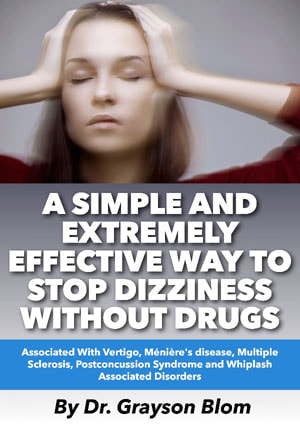

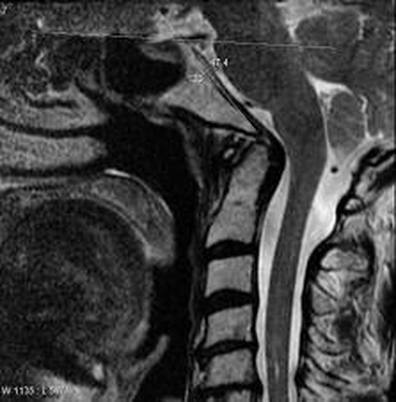
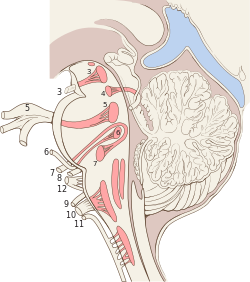
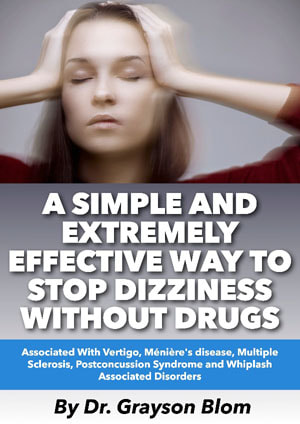

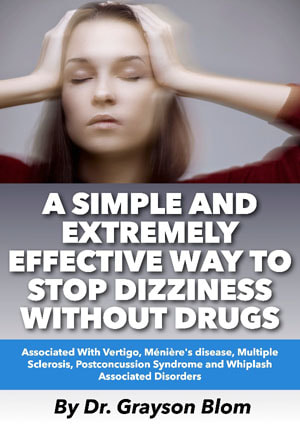





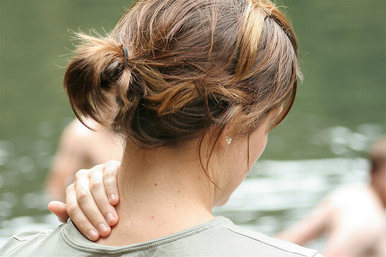





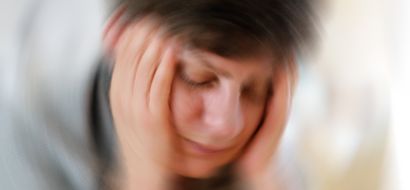


 RSS Feed
RSS Feed


